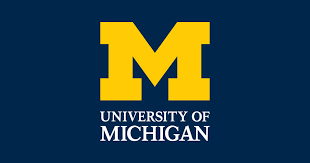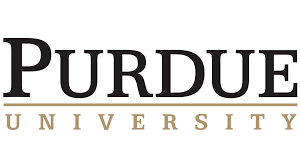20 Best Doctor of Biomedical Engineering Graduate Schools

Find your perfect college degree
Biomedical Engineering (BME) is among the most vital areas in modern advancements in the engineering and life fields. BME is widely used in various studies, including:
- Molecular and Cell Biology
- Human Anatomy And Physiology
- Medical Technology
- Neural Science and Medicine
- Neuro-Engineering
- Diseases
- Drug Development and Delivery
The application of engineering techniques into pharmacology and immunology studies has also birthed other subfields like Immuno-Engineering, Gene Therapy, and Translational Medicine that convert theoretical research into practical applications in Medicine and life sciences.

Biomedical Engineering: Funding Facts
Through various generous funding from federal agencies, and Coulter Translational Partnership Research Grant and the Whitaker Foundation, a lot of colleges and universities were able to offer their own BME programs.
Financial support for BME transforms it into a distinct discipline, fostering collaboration and advancement among research groups. It also gives rise to innovative research centers that benefit from streamlined funding for advanced equipment.
In FY 2019, the fields of BME and bioengineering (BIOE) were among the top five engineering fields that have received the highest federal funding for R&D, edging aerospace, aeronautical, and astronautical engineering by $50K – and this is just federal funding, private funding for the BME field is just as generous, if not more.
Quick audio summary:
METHODOLOGY
The programs included in the list were based on the following criteria:
- The breadth of research done by the department,
- The breadth of research areas or fields,
- The existence of in-house research centers, institutes or facilities centers,
- The department’s affiliation with outside relevant research facilities which should include engineering facilities (machining, sectioning, imaging, spectroscopy, etc.) and medical facilities (hospitals, research centers, school of medicine, etc.),
- Program funding, plus points if it has received grants from the Coulter Foundation or the Whitaker Foundation, and other federal grants (NSF, NIH, etc.)
- Faculty pedigree, plus points for faculty that have been elected as fellows into professional societies and board memberships,
- Existence of other initiatives such as entrepreneurship, design studio, and industry partnership initiatives, plus points for startups established within the university or with a BME faculty, fellow, or student at the helm,
- Distinct program offerings include emphases, concentrations, or dual doctoral degree pathways (M.D./D.V.M./J.D./D.D.M. + Ph.D.).

20 Best Doctor Of Biomedical Engineering Graduate Schools
Massachusetts Institute of Technology

Cambridge, MA
Ph.D. in Biological Engineering
| Tuition: | Varies |
| Credit Hours: | 266-275 |
| Length: | 5 years |
| Acceptance Rate: | 5% |
MIT’s School of Engineering received the highest federal funding for biomedical engineering research in 2019, with 65% of the total amount being federally financed. It has 56 professors; 36 are affiliated with 11 research centers currently conducting studies on 23 research areas, including:
Program Features:
- Offers a flexible Analysis of Biological Networks and Principles of Molecular Bioengineering-oriented curriculum.
- Students must pass a written exam and an oral exam equivalent to the dissertation proposal presentation.
Harvard University

Boston, MA
| Tuition: | $54,032 first two years |
| Credit Hours: | Varies |
| Length: | 5 years |
| Acceptance Rate: | 10% |
The Paulson School of Engineering & Applied Sciences does not have departments. This translates into communal and collaborative disciplines. Furthermore, SEAS has eight research areas and 30+ research institutes and initiatives where science, engineering, IT, and public policy integrate.
Program Features:
- Sixteen courses, a two-year campus residency, and research diving into Bioengineering.
- Students may also dabble in other subfields like robotics, biomechanics, biomaterials, and cell and tissue engineering.
- Offers collaborative research in other SEAS fields like engineering, applied mathematics, physics, and science.
University of California San Diego (UCSD)

La Jolla, CA
| Tuition: | Varies |
| Credit Hours: | Varies |
| Length: | 6 years |
| Acceptance Rate: | N/A |
The Department of Bioengineering collaborates with various Engineering and School of Medicine departments to provide interdisciplinary degrees. It has 50+ faculty members and 30 research groups studying Stem Cell Biology and Bioengineering, Bioinformatics and Systems Biology, and Biomaterials and Regenerative Medicine, to name a few.
Department chair Kun Zhang spearheads the Laboratory of Integrative Genomics, while adjunct professor Andrew Bartko is affiliated with the Center for Microbiome Innovation.
Program Features:
- Requires its first-year students to enroll in three engineering and three life sciences courses from this list and complete a one-term teaching assistantship.
- Accepts second-year UCSD School of Medicine students who intend to pursue a dual doctorate (Ph.D./M.D.) through the Medical Scientist Training Program.
John Hopkins University

Baltimore, MD
Ph.D. in Biomedical Engineering
| Tuition: | $62,840 per year |
| Credit Hours: | Varies |
| Length: | 5 years |
| Acceptance Rate: | N/A |
The BME programs at JHU are pioneers in the country. These innovative programs boast faculty from both engineering and medical disciplines, highly specialized and integrative curricula, and the renowned BME Design program, teaching design thinking principles to BME students for twenty years.
Program Features:
- Combines engineering and medical disciplines for a specialized curriculum.
- Requires 30 coursework credits, two BME seminars, two ethics courses, a customized program plan, a teaching assistantship, campus residency, a dissertation proposal, and oral defense.
- Seven research areas and ten research institutes, with Biomedical Data Science, Genomics, and Systems Biology having the highest research.
- Allows students to apply to the highly selective Medical Scientist Training Program (MSTP).
Georgia Institute of Technology – Emory University School of Medicine

Atlanta, GA
Ph.D. in Biomedical Engineering
| Tuition: | Varies |
| Credit Hours: | Varies |
| Length: | 5 years |
| Acceptance Rate: | 20% |
Georgia Tech and Emory University’s joint Biomedical Engineering program, funded by the Whitaker Foundation, boasts over 100 professors and nine research areas, including Cancer Technologies, Biomedical Robotics, and Cardiovascular Engineering. The Coulter Department of Biomedical Engineering is also affiliated with four research centers, including the Marcus Center for Therapeutic Cell Characterization and Manufacturing.
In 2020, GA Tech conferred the highest number of BME doctorates, with 35 students completing the Ph.D. program.
Program Features:
- Requires courses in bioscience, engineering, ethics, professional development, teaching, BME, and seven seminars per term.
Can be earned via other pathways such as the M.D./Ph.D. in BME dual degree pathway and the trilateral Ph.D. in BME offering from Emory, GA Tech, and Peking University
Duke University Pratt School of Engineering

Durham, NC
Ph.D. in Biomedical Engineering
| Tuition: | $69,620 per year (Years 1-3) |
| Credit Hours: | Varies |
| Length: | 5 years |
| Acceptance Rate: | 14.80% |
The BME training and research at Duke University is helmed by a world-renowned faculty of researchers and professors, many of whom are fellows of esteemed BME organizations.
All Duke BME students are encouraged to participate in the Duke Startup Challenge, with stake prizes ranging from $500 to $50K. The challenge promotes departmental collaboration, with a group with 20% BME student leadership winning an additional $10K prize from the BME department.
Program Features:
- Thirty credits of coursework, two credits of seminars, two terms of TA work, an ethics workshop, and the dissertation proposal and defense.
- Twelve research areas, including work on Biomedical Imaging & Biophotonics and Biosensors & Bioinstrumentation.
- Maintains partnership with the Fitzpatrick Institute for Photonics, among other partnerships.
- Maintains partnership with Wallace H. Coulter Foundation that supports BME research, awarding an average of $700K annually for three to five approved proposals for annual review.
Stanford University Schools of Engineering and Medicine

Stanford, CA
| Tuition: | $1,304 per unit |
| Credit Hours: | Varies |
| Length: | 5 – 6 years |
| Acceptance Rate: | 5% |
“With engineering as our paintbrush and biology as our canvass…” these words on the Stanford BioE page say everything one needs to know about its programs. Stanford’s Department of Bioengineering boasts 29 faculty-helmed labs, affiliations with 30+ research centers, and 20 research areas, including studies on the microbiome, protein engineering, metabolic engineering, and synthetic biology.
Program Features:
- Requires a laboratory rotation, TA work for two courses, a dissertation proposal, and a defense for program completion.
- Applied BME projects receive funding from the Coulter Foundation and Stanford partnership, granting an average of $800K annually.
Students also can earn a second doctorate along with a Ph.D. in Bioengineering, such as Medicine (through the Medical Scientist Training Program, or MSTP) or Law (through the School of Law).
Rice University

Houston, TX
| Tuition: | $3,178 per credit |
| Credit Hours: | 90 |
| Length: | 4-6 years |
| Acceptance Rate: | N/A |
Rice University’s Department of Bioengineering, with nearly 30 faculty members, specializes in various fields, including biosciences, biochemistry, tissue engineering, biomolecular engineering, and its applications in Medicine.
Program Features:
- Requires 15 Bioengineering courses, 12 transfer credits, three research electives, a 2.5-semester teaching assistantship, and a dissertation proposal and defense.
- Applicants must demonstrate completion of Systems Physiology, Statistics, and Cell Biology courses or equivalent.
- Has four research areas:
- Biomaterials and Mechanobiology
- Biomedical Imaging and Bioinstrumentation
- Bioengineering and Biophysics, and,
- Cellular, Molecular, and Genome Engineering & Synthetic Biology have the highest faculty involvement.
- Affiliated with 14 research institutes that focus on biological physics, global health, technology entrepreneurship, and engineering leadership.
Boston University

Boston, MA
Ph.D. in Biomedical Engineering
| Tuition: | $31,899 per semester |
| Credit Hours: | 32-64 |
| Length: | Varies |
| Acceptance Rate: | 36% |
Boston’s Department of BME, the first to offer an undergraduate BME, now has partnerships and affiliations with several research centers and facilities. Among these is the Bioengineering Technology & Entrepreneurship Center (BTEC), which aims to create engineers with a deep sense of social awareness and responsibility.
The department receives generous funding from renowned BME benefactors like the Whitaker Foundation and the Coulter Foundation.
Program Features:
- Requires the completion of 64 (bachelor’s entry) and 32 (master’s entry) credit units.
- Offers concentrations or minor degrees, such as:
- Minor in BME
- Concentration in Manufacturing Engineering
- Concentration in Technology Innovation
- Concentration in Nanotechnology
- Concentration in Energy Technologies and Sustainability
- National Academy of Engineering (NAE) – Grand Challenge Scholars concentration
- Has over 100 faculty members from diverse fields, with 40 currently leading their research labs/groups.
- Offers eight research areas, with the highest faculty involvement in Computational Modeling and Data Science and Molecular, Cellular and Tissue Engineering (MCTE).
University of Washington

Seattle, WA
| Tuition: | $25,734 per year |
| Credit Hours: | 33 (beyond master’s in BioE) |
| Length: | 5 years |
| Acceptance Rate: | N/A |
UW’s Department of Bioengineering is renowned for its curriculum, research involvement, and entrepreneurial spirit, fostering innovative startups rooted in the ingenuity and brilliance of its faculty. UW Bioengineering students participate in BioEngage, connecting with industry companies for job placements, internships, and collaborations. Furthermore, the department leads in patents and innovations, leading to 40 UW-connected startups.
Program Features:
- Requires first-year students to rotate between laboratories to choose a research adviser.
- Has 15 research centers focused on ultrasound-based technologies, audio technologies, stem cell therapy, and neurotechnology, funded by NIH’s ESCA-BIO and Physiome Project’s National Simulation Resource.
University of Florida

Gainesville, FL
Ph.D. in Biomedical Engineering
| Tuition: | Varies |
| Credit Hours: | 90 |
| Length: | 5 years |
| Acceptance Rate: | 8% |
The University of Florida’s Biomedical Engineering Department, established in 2002, is a recent addition to the College of Engineering and has a foundation largely attributed to the Whitaker Foundation. Moreover, the department has received significant contributions from Dr. Pruitt and his family.
To aid in research, the department’s facilities include three Zeiss microscopes, a high-speed and ultra-speed centrifuge, a microtome, several types of imaging systems, and other types of instrumentation and state-of-the-art equipment.
Program Features:
- Offers a flexible approach, requiring 18 credits for BME and specialized electives, nine required courses, four TA work credits, and a dissertation proposal and defense.
- Uses advanced research facilities including Zeiss microscopes, centrifuges, microtomes, imaging systems, and other advanced instrumentation and equipment to help students with their studies.
- Provide students access to several bioengineering research centers, including the Genetics Institute, the Institute on Aging, and the Nanoscience Institute for Medical and Engineering Technology (NIMET).
- Allow students to pursue electives in the Engineering Innovation Institute (EII).
- Offers non-degree Engineering Innovation Certificate
University of Minnesota

Minneapolis, MN
Ph.D. in Biomedical Engineering
| Tuition: | $1,593 per credit (resident) $2,465 per credit (non-resident) |
| Credit Hours: | 54 |
| Length: | 3-5 years |
| Acceptance Rate: | 68% |
UMN’s Department of Biomedical Engineering and other departments have strong support for research-based entrepreneurship, and nearly 50% of faculty research has resulted in successful startups. The BME department allows its first and second-year Ph.D. students to partake in the Cardiovascular Engineering Training program (CET), focusing on the potential innovations relevant to cardiovascular diagnosis, treatment, and prevention.
Program Features:
- Two exams are required: the dossier or the dissertation proposal, both in written and oral format, and the dissertation defense.
- Has eight research areas with heavy involvement from the 80+ faculty (including adjunct faculty) of the department.
- The department’s Tissue Mechanics Laboratory houses sophisticated instrumentation, such as a microprobe system and testing systems for studies involving biomechanics and other related disciplines.
University of Pennsylvania

Philadelphia, PA
| Tuition: | $41,544 full tuition per academic year |
| Credit Hours: | Varies |
| Length: | 5 years |
| Acceptance Rate: | 15% |
The University of Pennsylvania was the first educational institution to confer the Doctorate or Ph.D. in Bioengineering degree in 1953. The School of Engineering & Applied Science (SEAS) is connected to nearly 30 research institutes, including the Penn Cardiovascular Institute and the Penn Center for Molecular Discovery.
Moreover, the department’s faculty is known for its collaboration with industry leaders and startups, resulting in cardiology-related innovations like new treatment approaches, biocompatible implants, and vascular grafts for arterial bypass procedures.
Program features:
- Requires students to rotate through different labs in preparation for research work, which should begin in the summer term of their first year.
- Offers 16 research areas, with Molecular Engineering and Cellular Engineering having the highest faculty involvement. Other research fields of note also include Computational and Experimental Neuro-engineering.
- The faculty leads 25 research groups, integrating STEM, Medicine, and life sciences, including the Kording Lab, which explores data science and machine learning for neural data processing and analysis.
University of California Davis

Davis, CA
Ph.D. in Biomedical Engineering
| Tuition: | Varies |
| Credit Hours: | 64 to 96 |
| Length: | 4-5 years |
| Acceptance Rate: | N/A |
UC Davis’ Department of Biomedical Engineering has a long and inspiring history from 1965 when the first consideration for a BME program or research group was made. It is home to 65+ faculty members from different and yet relevant disciplines to BME. A third of the faculty is also connected to the School of Medicine.
Program Features:
- Includes the following courses:
- Physiology for Engineers
- Statistical Design of Experiments or Mathematical Methods for Biomedical Engineers
- Cell/Molecular Biology for Engineers, and,
- Acquisition and Analysis of Biomedical Signals
- Research conferences, seminars, teaching assistantships, a dissertation proposal (pending a qualifying exam), and a defense are required.
- Offers six major research areas, with the most active being the MCTE, mechanobiology, and neuro-engineering.
- Students may also specialize in Biophotonics and Bioimaging as an added credential to their Ph.D. degree (emphasis).
Texas A&M University

College Station, TX
Ph.D. in Biomedical Engineering
| Tuition: | Varies |
| Credit Hours: | 64-96 |
| Length: | 4-5 years |
| Acceptance Rate: | 10-15% |
Texas A&M University’s Department of BME, a research powerhouse, has generated 65 patents and 11 startup companies, with faculty members who have helmed peer-reviewed publications and board memberships.
Moreover, the department is home to four research areas that focus on bio-instrumentation, bioimaging, development of medical devices, and regenerative Medicine. BME Department researchers have created a 3D model of blood vessels, a significant advancement in cardiovascular disease and drug therapy studies, showcasing precision in human vascular anatomy.
Program Features:
- Doctoral candidacy admission requires a one-year academic residency, satisfactory completion of coursework and a pre-candidacy exam.
- Has 26 faculty-led research groups, as well as 44 shared equipment and instrumentations for imaging, sectioning, microscopy, sample preparation and separation, spectrometry, particle analysis, testing, measuring, machining, and other experimental processes.
In addition to harnessing research skills, BME students are also required to enhance their entrepreneurial drive through the BME Design Studio.
University of Michigan Ann Arbor

Ann Arbor, MI
Ph.D. in Biomedical Engineering
| Tuition: | Varies |
| Credit Hours: | Varies |
| Length: | 5-6 years |
| Acceptance Rate: | 5% |
The UM Department of BME, co-managed by the College of Engineering and School of Medicine, has a faculty of engineers, medical doctors, and experts in various fields.
There is no shortage of ideas from Michigan BME researchers. Some of its recent innovations include finger-controlled prostheses, a new methodology for predicting one’s vaccine response (or lack thereof), and medical warning wearables for hospitalized cancer patients.
Program Features:
- Offers various concentrations:
- Biomechanics and Bio-transport
- Biomedical Imaging and Ultrasonics
- Bio-electrics and Neural Engineering
- Medical Product Development
- Biotechnology and Systems Biology
- Biomaterials and Regenerative Medicine
- Actively involved in various research areas, with regenerative Medicine and computation & modeling being the most prominent.
- Allows candidates to use facilities from the College of Engineering & School of Medicine, including the Biointerfaces Institute and SoM’s Center for Arrhythmia Research.
Columbia University

New York, NY
Ph.D. in Biomedical Engineering
| Tuition: | $26,788 per semester |
| Credit Hours: | Varies |
| Length: | 5-6 years |
| Acceptance Rate: | 28.4% |
Columbia’s Biomedical Engineering is a joint effort among various Columbia departments, including the Faculty of Medicine, College of Dental Medicine, Mailman School of Public Health, and Graduate School of Arts and Sciences. The department is helmed by 60+ faculty members hailing from various disciplines. Faculty research involvement is significant in Biology, Biomechanics, Imaging, and Medicine.
Program Features:
- Ph.D. students with master’s degrees must complete 30 credits of coursework, including computational modeling of physiological systems and two graduate-level mathematics courses.
- They are also required to work as teaching assistants for at least two terms.
- The program researches Biomechanics, Bio-signals and Biomedical Imaging, Cell and Tissue Engineering (CTE), and Neuro-engineering.
- Offers a dual degree M.D./Ph.D. pathway.
Virginia Polytechnic Institute & Wake Forest University

Blacksburg, VA
Ph.D. in Biomedical Engineering
| Tuition: | Varies |
| Credit Hours: | 30-90 |
| Length: | 4-5 years |
| Acceptance Rate: | N/A |
Virginia Tech partners with Wake Forest University (WFU) to form the School of Biomedical Engineering and Sciences (SBES), which houses the Biomedical Engineering program. SBES combines biomedical sciences, engineering, and real-world applications that aim to train students to improve life quality through innovative research and teaching
Program Features:
- Requires the completion of courses in BME, life sciences, mathematics, ethics/diversity, and six semesters of seminars.
- Features over 100 faculty members from Virginia Tech and WFU who are actively involved in 12 BEAM research areas, with biomechanics being the most active area.
- BEAM is also affiliated with five research centers, one of which is the Center for Injury Biomechanics.
- Waives clinical rotation for second-year Ph.D. students under the dual-degree M.D./Ph.D. or D.V.M./Ph.D. pathway.
Purdue University

West Lafayette, IN,
Ph.D. in Biomedical Engineering
| Tuition: | $5,558 per semester (in-state) $14,959 per semester (out-of-state) |
| Credit Hours: | Varies |
| Length: | 5 years |
| Acceptance Rate: | N/A |
Purdue’s BME programs are housed within the Martin C. Jischke Hall of Biomedical Engineering, home to advanced engineering and science facilities that can aid in research and top-notch BME education.
For students with no engineering background but still wish to pursue research and a doctorate in the applied biomedicine field, Purdue also offers a Ph.D. program in Interdisciplinary Biomedical Sciences degree with the College of Veterinary Medicine.
Program Features:
- Requires students to submit a plan of study to their thesis advisers and attend seminar courses for literature analysis.
- Offers research on four areas with equal faculty involvement:
- Imaging
- Instrumentation
- Computational Biomedicine
- Engineered Biomaterials and Biomechanics
- As of writing, there are 6 research opportunities, which focus on Microbiome Studies, Neuroscience, Translational Medicine, Medical Wearables, and Imaging.
- Allow students to partake in the BIOMEDSHIP joint program.
University of Maryland College Park

College Park, MD
| Tuition: | $1,350 per term candidacy (in-state) $2,626 per term candidacy (out-of-state) |
| Credit Hours: | Varies |
| Length: | 5 years |
| Acceptance Rate: | 14.9% |
UM’s Bioengineering program is ahead in many ways. It is home to the Robert E. Fischell Institute for Biomedical Devices and the BioWorkshop, home to various research aids and equipment.
UM’s BIOE program received a $1M FDA grant, establishing the Center of Excellence in Regulatory Science and Innovation (CERSI) and enhancing regulatory methods for medical therapeutics and devices. Some of UM’s latest published works in the field of BME are in cancer research, drug delivery, specifically gene therapy, and the application of nanotechnology in tissue engineering.
Program Features:
- The program offers varying course requirements, with some courses being reduced for those with a master’s degree in BIOE or engineering or STEM fields.
- There are three required courses:
- Transport Phenomena in Bioengineering Systems
- Rate Processes in Biological Systems
- Physiological Evaluation of Bioengineering Designs
- A dual doctoral degree pathway (M.D./Ph.D) is also offered.
- The department is currently involved in the following research areas:
- Bio-computation
- Bio-molecular Engineering
- Biomaterials
- Biomechanics & Mechanobiology
- Drug Delivery
- Medical Devices
- Optical Technologies & Imaging
- Tissue Engineering & Regenerative Medicine
- BIOE faculty and post-docs currently oversee 18 research labs specializing in biomolecular studies, optics, biophotonics, and drug delivery.

Frequently Asked Questions
Why pursue a Ph.D. in Biomedical Engineering?
The NCES reported in 2020 that Biological and Biomedical Sciences awarded the highest number of doctorate degrees. Although a bachelor’s degree usually suffices as an entry-level requirement, this data shows us that a lot of professionals see higher value in a Ph.D.
While Biomedical Engineering is a typically costly major, affordable graduate programs in related disciplines like Biotechnology may be available online.
There are several reasons to pursue a Ph.D. in Biomedical Engineering.
One, Ph.D. programs allow professionals to gain advanced skills for research that will add more to the body of knowledge. And two, to increase salary and marketability. Based on the latest BLS data, if biomedical engineers and bioengineers with only a bachelor’s degree can nearly break the $100K mark, those with a Ph.D. can reasonably command a six-figure salary.
Biometechnology, Bioengineering, Biomedical Science… what’s the difference?
Bioengineering and Biomedical Science are distinct fields with distinct research areas. Schools may treat them synonymously, especially when faculty research areas are identical. For instance, both fields may include areas like Neuro-Engineering, Systems Biology, Computational Modeling, Bio-Imaging, Bio-Mechanics/Mechanobiology, and Regenerative Medicine.
However, their key difference is their focus. Bioengineering focuses on advanced mathematics and computational modeling, while BME focuses on practical engineering principles and techniques, particularly in Medicine. On the other hand, biomedical science has a more theoretical approach and requires more intensive research and application.
Who can apply to the program?
Undergraduates with a bachelor’s degree can apply even without a master’s degree, even if the undergraduate degree is a non-STEM degree. Most BME/BIOE programs will require students to have completed mathematics, statistics, calculus, physics, and elementary engineering or STEM courses in top-ranked graduate schools. If the undergraduate applicant lacks these, they can take these courses on a remedial basis to complete the requirement.
Of course, those with a master’s degree can apply and will have the advantage of completing less coursework than those with just a bachelor’s degree.
Are GRE scores required?
GRE scores are optional for AY 2022 unless withdrawn by the school. Best to check with the school’s admissions committee.
What are the usual degree requirements?
All BME/BIOE programs require an original and publicly defended dissertation accepted or deemed satisfactory by the dissertation committee. But before that, students must first complete the required coursework plus TA work, usually for two terms.
They must also pass the qualifying exams, one usually before the third year and the second for doctoral candidacy admission. Many programs also require an on-campus residency of at least one year.




